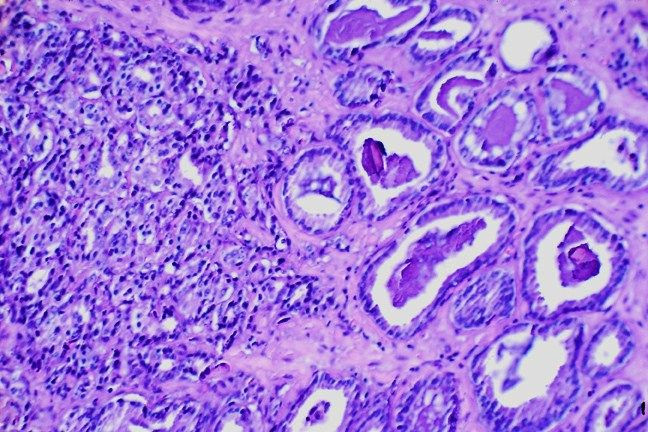New Sound Wave Therapy Targets Prostate Cancer with Less Side Effects

A new prostate cancer therapy that uses high-powered ultrasound beams to destroy cancer cells may have significantly fewer side-effects than existing treatments, according to a new study.
Researchers working in London and Basingstoke, southeastern England said the new treatment had was less risky than current treatments like surgery and radiotherapy, which leaves half of men impotent and a fifth incontinent, and side-effects are so common that men with slow-growing tumors are often advised against treatment.
The new treatment places a probe that emits sound waves close to the prostate, and heats targeted cancer cells to 80C (176F).
An experiment of 41 men who had undergone the experimental procedure of High Intensity Focused Ultrasound (HIFU) to destroy tumors found that none of the men in the experiment had incontinence and only 10 percent became impotent, the study published in the Lancet Oncology journal reported.
Lead researcher Hashim Ahmed, a urological surgeon, said that the results from the last 12 months after treatment are encouraging.
“Our results are very encouraging. We’re optimistic that men diagnosed with prostate cancer may soon be able to undergo a day case surgical procedure, which can be safely repeated once or twice, to treat their condition with very few side-effects. That could mean a significant improvement in their quality of life,” Ahmed said in a statement released on Tuesday by the University College London.
"This study provides the proof-of-concept we need to develop a much larger trial to look at whether focal therapy is as effective as the current standard treatment in protecting the health of the men treated for prostate cancer in the medium and long term," he said.
Professor Mark Emberton, of University College London Hospitals NHS Foundation Trust, said that the treatment offers harm reduction and offers men an alternative to standard care.
Emberton added that the new treatment for prostate cancer is not a new concept, “tissue preserving strategies have been used successfully in all other solid organ cancers such as breast cancer by offering women a lumpectomy rather than mastectomy,” he said.
Ahmed said that the cost of the total treatment would be around 2,500 pounds ($3982), which is cheaper than removing the prostate, which would be around 4,500 pounds ($7167). The new technology may also be applied to other cell-based cancer tumors like breast, liver, pancreas and thyroid cancers, he said, according to Bloomberg.
Prostate cancer, usually occurring in older men, is the sixth most-common cause of cancer death in men around the world, according to Cancer Research UK. The National Cancer Institute estimates that 241,740 men will be diagnosed with and 28,170 men will die of cancer of the prostate in 2012.
Published by Medicaldaily.com



























